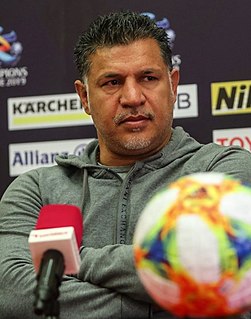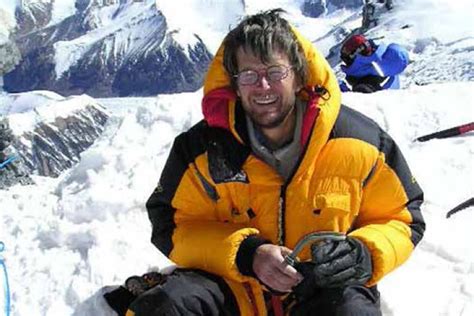A Quote by Elizabeth Samet
Our national fondness for celebrating the physical heroism of soldiers - the apparent readiness with which they sacrifice their lives to larger causes - eclipses the far less romantic displays of moral and intellectual fortitude that also distinguish so many of them. In turning them all into heroes, we have lost a sense of the individuality they also fight to preserve.
Related Quotes
Memorial Day is all about celebrating the lives of the men and women who paid the ultimate sacrifice in service to our country. The United States is made great because of their heroism. Their lives are remembered, honored, and celebrated by all of us, including the friends, family, and fellow service members who knew them best.
So many misconceptions surround the notion of heroism. Far too many categorize a hero as a champion on the battlefield, a commander of legions, a master of rare talent or ability. Granted, there have been heroes who fit those descriptions. But many men of great evil as well. Heed me. A hero sacrifices for the greater good. A hero is true to his or her conscience. In short, heroism means doing the right thing regardless of the consequences. Although any person could fit that description, very few do. Choose this day to be one of them." (Beyonders - A World Without Heroes)
Consequently, the truth of God lives in our souls more by the power of superior moral courage than by the light of an eminent intelligence. Indeed, spiritual intelligence itself depends on the fortitude and patience with which we sacrifice ourselves for the truth, as it is communicated to our lives concretely in the providential will of God
I'm saying to be a hero is means you step across the line and are willing to make a sacrifice, so heroes always are making a sacrifice. Heroes always take a risk. Heroes always deviant. Heroes always doing something that most people don't and we want to change - I want to democratise heroism to say any of us can be a hero.
I'm saying to be a hero it means you step accross the line and are willing to make a sacrifice, so heroes always are making a sacrifice. Heroes always take a risk. Heroes always deviant. Heroes always doing something that most people don't and we want to change - I want to democratise heroism to say any of us can be a hero.
Of one thing we can be sure: our own future is inseparable from the larger community that brought us into being and which sustains us in every expression of our human quality of life, in our aesthetic and emotional sensitivities, our intellectual perceptions, our sense of the divine, as well as in our physical nourishment and bodily healing.
People who, as children, were intellectually far beyond their parents and therefore admired by them, but who also therefore had to solve their own problems alone. These people, who give us a feeling of their intellectual strength and will power, also seem to demand that we, too, ought to fight off any feeling of weakness with intellectual means. In their presence one feels one cannot be recognized as a person with problems just as they and their problems were unrecognized by their parents, for whom he always had to be strong.
Which people take the time to care for their souls, these days? I reckon not many. But...hear this: I think that maybe in our lives - in our scrabbling for food, in the washing of our bodies and warming of them, in our small daily battles - we can forget our souls. We do not tend to them, as if they matter less. But I don't think they matter less.
It is indeed a matter of great difficulty to discover, and effectually to distinguish, the true motions of particular bodies from the apparent; because the parts of that immovable space, in which those motions are performed, do by no means come under the observation of our senses. Yet the thing is not altogether desperate; for we have some arguments to guide us, partly from the apparent motions, which are the differences of the true motions; partly from the forces, which are the causes and effects of the true motions.
Heroes are necessary in order to enable the citizens to find their own ideals, courage and wisdom in the society. The hero carries our hopes, our aspirations, our ideals, our beliefs. In the deepest sense the hero is created by us; he or she is born collectively as our own myth. This is what makes heroism so important: it reflects our own sense of identity and from this our own heroism is molded.
It is part of the moral tragedy with which we are dealing that words like 'democracy,' 'freedom,' 'rights,' 'justice,' which have so often inspired heroism and have led men to give their lives for things which make life worthwhile, can also become a trap, the means of destroying the very things men desire to uphold.


































